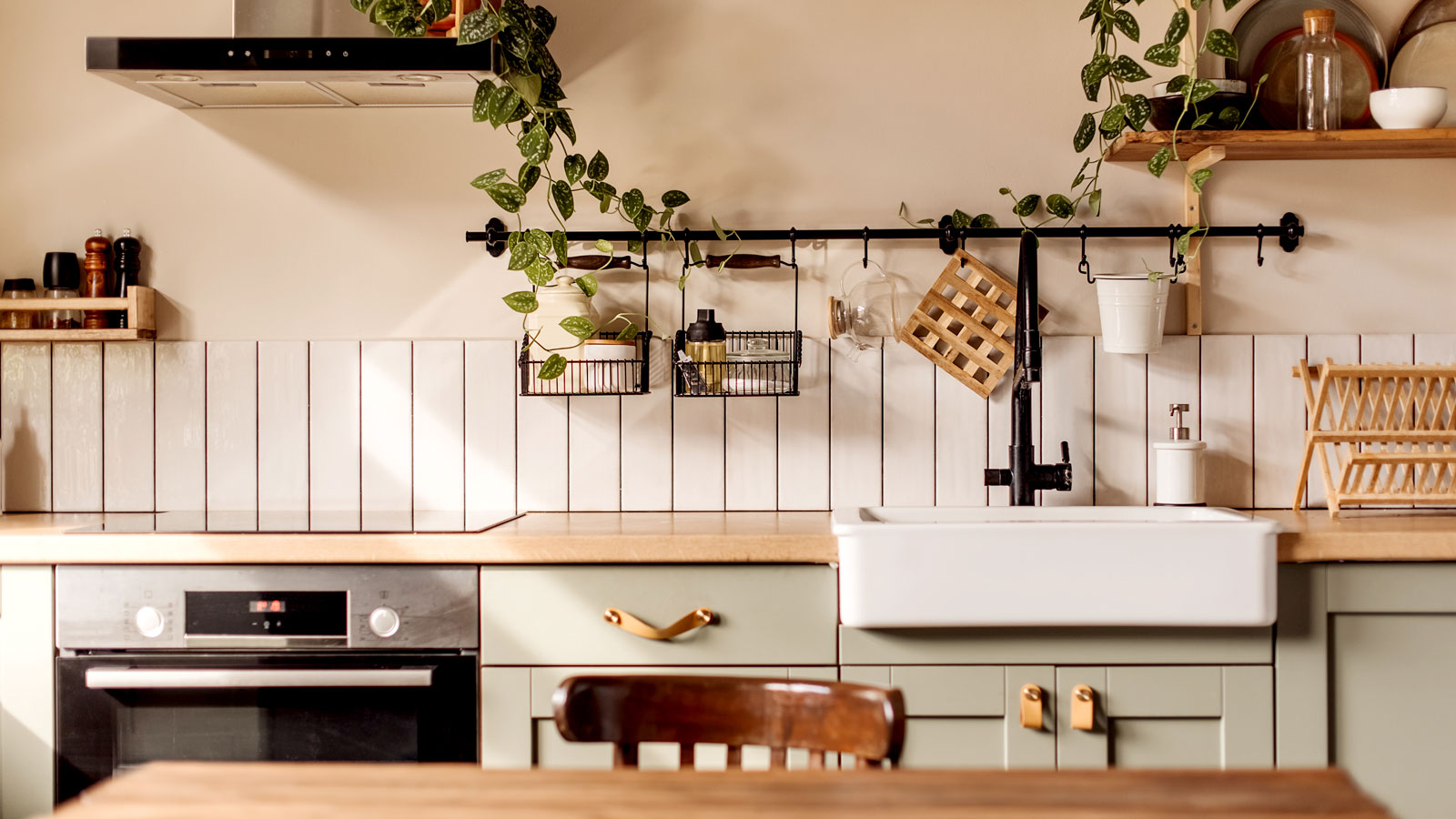Thinking of buying a house without a survey? Why it isn’t a good idea
The idea of saving some money when you’re housebuying is tempting, but here are the reasons why skipping a survey isn’t a sound plan

- 1. A survey provides valuable information
- 2. It might reveal an issue that would make you walk away
- 3. A survey can be a negotiating tool
- 4. It will give you an insight into future costs
- 5. It’s worth it even if a house needs extensive work
- 6. The mortgage valuation isn’t the same thing
- 7. A survey could provide fallback
Bring your dream home to life with expert advice, how to guides and design inspiration. Sign up for our newsletter and get two free tickets to a Homebuilding & Renovating Show near you.
You are now subscribed
Your newsletter sign-up was successful
Homebuying without a survey could be an appealing idea. It would save money in a process where the costs that come on top of the purchase price of the home itself mount up.
And it’s not just the fee for a survey when you’re buying a house that can make you think twice. With housebuying typically taking several months, cutting something out of the process is a temptation. But whatever your reasons, not getting a survey is something property experts say isn’t a good idea.
Despite the cost, there are a host of reasons why a survey is worth having and we’ve detailed them below.
1. A survey provides valuable information
Miss out a survey and you’ll miss out on valuable information. “While new builds will typically be covered by a warranty which provides some degree of protection if there’s a problem with the building, older properties come with no such guarantee — so it’s a case of buyer beware,” says Phil Spencer, property expert and founder of Move iQ.
“That’s why it’s important you get a professional survey done as soon as the seller accepts your offer. A trained surveyor will be able to spot problems you might miss.”
Bear in mind that there is a choice of surveys to select from and which you opt for should be guided by the type of property you are buying. RICS level 2, the most popular, is thorough but non-intrusive; or there is the comprehensive level 3, better for older homes, those made of unconventional materials, or when you need to know more about the condition. RPSA, meanwhile, offers a home buyer/condition survey, or the more detailed building survey.

Phil Spencer is a presenter, author, businessman and property investor. As co-presenter of the long-running Channel 4 series Location Location Location, he has become one of the best-known faces on British television and is widely regarded as an expert on all things property. Outside of television, he has published three books and founded the property advice site Move iQ.
2. It might reveal an issue that would make you walk away

Subscribe to Plotfinder.net to access over 15,000 building plots and properties that could become your next project
Go ahead without a survey and you might later discover something that would have put you off buying the house.
Bring your dream home to life with expert advice, how to guides and design inspiration. Sign up for our newsletter and get two free tickets to a Homebuilding & Renovating Show near you.
“Yes, surveys typically cost several hundred pounds,” says Phil Spencer. “But buying a home is invariably the most expensive purchase we ever make; the cost of a survey is tiny in comparison, and the peace of mind it can bring is priceless.
“If the survey does reveal that the property has a serious ‘skeleton in the closet’, you could decide to walk away from the purchase. Remember that in England and Wales you’re not committed until contracts have been exchanged.”
3. A survey can be a negotiating tool
A survey is also useful because it might turn up issues that aren’t enough to put you off a property, but that do mean it’s going to cost you more than you anticipated.
“You could use the survey’s findings as grounds to negotiate some money off the seller’s price,” says Phil Spencer. “Surveys can be useful haggling tools.”

4. It will give you an insight into future costs
On top of the purchase price and the hidden costs of buying a house, there are the costs of being a homeowner to prepare for. These include maintenance of the property, along with any repairs that become due.
A survey can help you predict these. Opt for a level 2 or a level 3 survey and you’ll find out what future repairs and maintenance you might expect, helping you budget for them along with mortgage payments, home insurance, utility bills, council tax and water.
5. It’s worth it even if a house needs extensive work
If you’re buying a house to renovate it can be particularly tempting to swerve a survey because you’re going to be upgrading the home in any case. However, this isn’t a good reason. “A survey is just as important – if not more important – when the property you’re considering buying is in obvious need of some TLC,” says Phil Spencer.
“While most of us can spot problems like peeling paintwork, cracks or mould, only a trained surveyor can tell if these issues are superficial or a warning sign of something more serious.
“In cases like this, it’s often worth splashing out on a more highly detailed survey, such as a RICS level 3 home survey,” he adds. “These are more comprehensive than the cheaper RICS level 2, and the surveyor will typically look behind furniture and lift up floorboards to zone in on and diagnose the cause of any issues.”
Since major issues could mean your renovation budget isn’t sufficient the information is worth the cost of a survey.
6. The mortgage valuation isn’t the same thing
If you’re taking out a mortgage to buy a home, it’s easy to assume that the lender’s valuation is enough and you don’t need a survey. But the valuation is not the same thing.
“A lender’s valuation and subsequent offer of loan may give the buyer some comfort that there are no defects to the property serious enough for the lender to refuse to lend,” says Tim Jordan, partner and director of conveyancing at SAS Daniels.
However, the valuation and survey have different purposes, he explains. “The lender’s valuation is carried out for the lender’s benefit to assess whether the property offers sufficient security for its loan whereas the buyer’s survey is designed to be much more detailed and discover defects or issues which could impinge on the buyer’s use and enjoyment of the property going forward.”

Tim Jordan is a specialist property lawyer with over 30 years’ experience working in the residential property sector. Over that period he has dealt with all manner of transactions from a two-up two-down terraced house to a substantial country estate.
7. A survey could provide fallback
Another benefit of a survey you’ll miss out on if you go without is the possibility of recourse to law should something be missed.
“If a defect is revealed which should have come to light in the survey report, there is potentially recourse against the surveyor,” says Tim Jordan.
“While it’s not a legal requirement to get a survey done, I’d always recommend getting one,” says Phil Spencer. Along with your conveyancer, a surveyor can contribute to ensuring you have the maximum information before you buy to make the best decision.

Sarah is a freelance journalist and editor writing for websites, national newspapers, and magazines. She’s spent most of her journalistic career specialising in homes.
She loves testing the latest home appliances and products, and investigating the benefits, costs and practicalities of home improvement. She is an experienced renovator and is currently remodelling the ground floor of her new home.
She was Executive Editor of Ideal Home and has worked for Your Home and Homes & Ideas. Her work has published by numerous titles, including The Guardian, channel4.com, Houzz, Grand Designs, Homes & Gardens, House Beautiful, Homes & Antiques, Real Homes, The English Home, Period Living, Beautiful Kitchens, Good Homes and Country Homes & Interiors.
